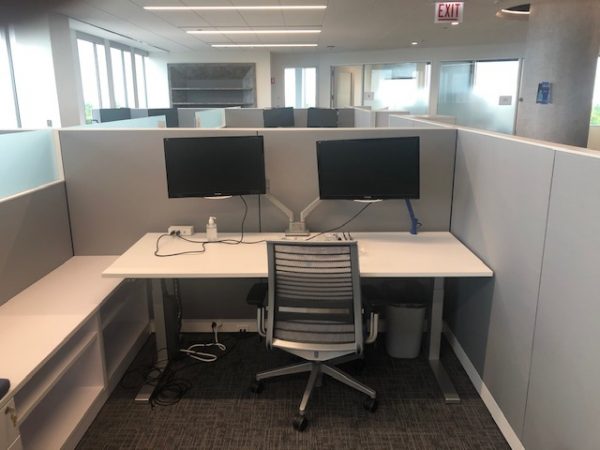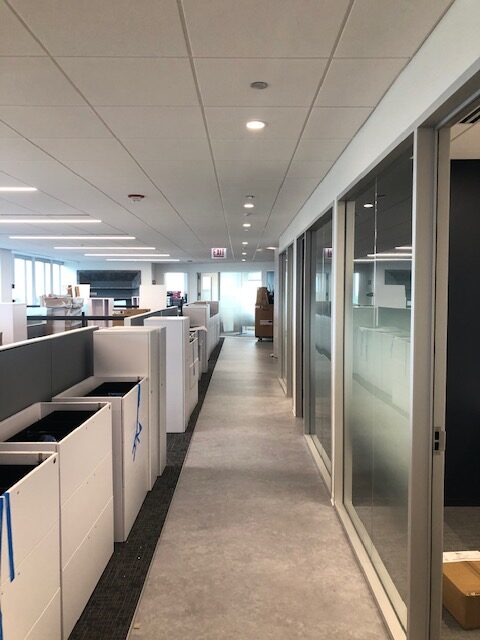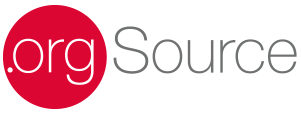A Positive Culture and an Innovative Approach Sidestep Disruption—How PCI Successfully Moved During the Pandemic

Designing a new office space and making the move is no small venture. When the Precast/Prestressed Concrete Institute (PCI) planned to move from downtown Chicago to Chicago’s Triangle Plaza near O’Hare International Airport they knew that they would need outside support to manage the project.

.orgSource Senior Consultant, Kevin Martlage, had recently been working with the group on an internal business culture enhancement initiative and was happy to take on this responsibility. .orgSource would oversee construction, moving, IT, design, and decommissioning of the old space.
Everyone was thrilled to be headed towards a light-filled, contemporary office. Ample room for conferencing and collaboration was incorporated into the design, and proximity to Chicago’s O’Hare Airport made the location convenient for volunteers as well as staff. That the move would be challenging was a given, but the payoff would be worth the effort. With Kevin heading the initiative, the interruptions to business as usual would be minimized.
What no one could have predicted was COVID-19. The virus reached its peak in Illinois during the project’s most critical months. The disruption of switching to remote work while moving an entire office might have spelled chaos for a weaker team. Fortunately, PCI’s cultural and technological expertise allowed the organization to make the necessary adjustments almost seamlessly.
“PCI has a unique ‘can do’ culture,” Kevin remarks. “This cooperative attitude has been evident since I began working with them over 18 months ago. I certainly feel that the leadership team plays a huge role in promoting that behavior, but it’s also evident that the entire staff genuinely has the drive to be successful and wants to make PCI the best it can be. It’s not just a few people who are willing to go above and beyond; everyone pitched in to help.”
A Strong Technology Infrastructure Is Critical

IT preparedness is an issue that the pandemic has placed front and center. Organizations, where technology is a priority, have fared far better than associations where it is an afterthought. “From an IT standpoint, PCI had the right systems in place,” Kevin notes. “Every employee has a laptop and docking station. Files and information are saved and available in the cloud. When PCI switched to remote work, they did not have to worry about coordination, buying new equipment, or training employees. But more importantly, the team’s commitment to a successful pivot made it happen.”
Even with an up-to-date technology infrastructure and an enthusiastic staff, the pandemic was bound to throw some curveballs. Most issues were discussed and resolved in weekly meetings. Packing was one of many areas that called for creative problem-solving. “During the lockdown, we were unable to safely visit the old office to complete the packing, cleaning, and organizing procedures we had developed for the move,” Kevin recalls. “We staggered office visits in four-hour blocks of time so that team members could organize their belongings and ensure that proper social distancing guidelines were met.”
Other challenges created by the virus were not so easily resolved. “Scheduling the freight elevator for the new building was one of those COVID-related problems that threatened to derail our plans in a significant way,” Kevin says. “The company manufacturing the new furniture had a lengthy shutdown, which impacted the overall construction schedule. When they resumed operations, we finally got a date for delivery and installation, only to discover that the freight elevator was booked for that day. A good working relationship with the building management allowed us to coordinate with the tenant who had reserved the elevator so that we remained on schedule for the furniture delivery.
“There is a silver lining in every challenge that comes your way,” Kevin advises. “The ability of the PCI team to manage the pandemic while continuing to advance their organization was incredible. If there was ever a doubt that an association can function with a remote workforce, this is the case study of how it should be done. PCI did not miss a beat. They continued to advance the association’s projects and initiatives during the entire move and pandemic. It was great to be a part of this project and discover how PCI could juggle remote work, an office renovation and move, and the stress of a pandemic, while continuing to perform at an exceptional level.”
“From previous experiences with office moves, we knew that to be successful we needed someone to coordinate all the moving parts who was also not caught up in the day-to-day work of the Institute,” said Bob Risser, P.E., PCI’s president and CEO. “From our past work with .orgSource, we were confident that Kevin could provide the level of communication and leadership to make the project successful. I’m so proud of the PCI staff and Kevin for the adjustments they made to get the move made despite the delays COVID-19 produced, all the while working remote.
“The original schedule was supposed to have us moved before the annual budget and certification renewals season kicked into high gear. With Kevin’s coordination we were able to adjust and still deliver large accomplishments for PCI members (a new promotional website, remote learning, new publications) on time. Even with the move behind us, we look forward to continuing to work with Kevin and .orgSource on continual improvement of the organization.”
An Association 4.0 Approach to Leadership

Over the last few years, .orgSource has been studying best practices for success in Industry 4.0, or the convergence of the cyber and physical worlds that is happening across the business environment. We believe that a new kind of organization is needed to thrive in the digital marketplace. We call the constellation of characteristics that define this approach Association 4.0 leadership. PCI’s story demonstrates the power of two of the most important traits—a positive culture and an innovative approach. When organizations cultivate these qualities, they can:
- Recognize disruption on the horizon
- Pivot when change is necessary
- Collaborate to address challenges
- Communicate and share vision, values, and goals across the association
It may be a while until the PCI staff can enjoy the amazing view of the Chicago skyline or watch the airplanes land from their new office. For now, most employees still work remotely. .orgSource is pleased that we are continuing and growing our relationship with this outstanding association. Helping them to select a learning and certification management system as well as providing Myers-Briggs focused leadership development courses are ongoing and upcoming projects.
“This initiative was a very involved process,” Kevin says. “Regardless of the task, it is always important to focus on intentional and transparent communication. By ensuring that everyone was on the same page, we avoided major challenges and built on the strong team orientation within the organization. I wish PCI nothing but the best in their new location. My thanks to everyone who participated.”
About PCI
PCI is staffed by 29 employees. The president and CEO is Bob J. Risser, PE. The staff lead for this project was Beth Taylor, CPA, CAE, chief financial and administrative officer. Other members of the moving team were: Becky King, Bob Risser, Chris Hurst, Cody Kauhl, Laura Bedolla, Mike Smith and Royce Covington.
Founded in 1954, The Precast/Prestressed Concrete Institute (PCI) is a technical institute for the precast concrete structures and systems industry. PCI develops, maintains, and disseminates the Body of Knowledge for the design, fabrication, and construction of precast concrete structures and systems. PCI develops consensus base standards, industry handbooks, quality assurance programs, certification, research and development projects, design manuals, continuing education and periodical publications. PCI members include precast concrete producers, erectors, suppliers, professional engineers and architects, educators, students, and industry consultants who complement the wide range of knowledge of precast concrete. For additional information, visit pci.org.

